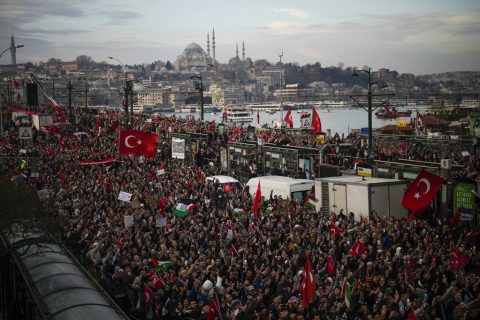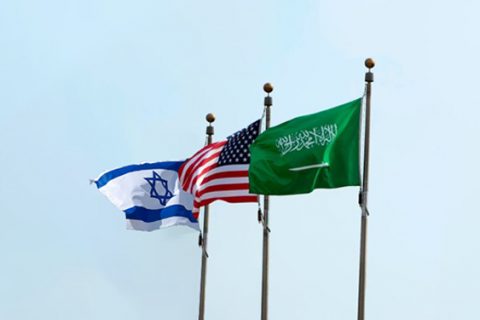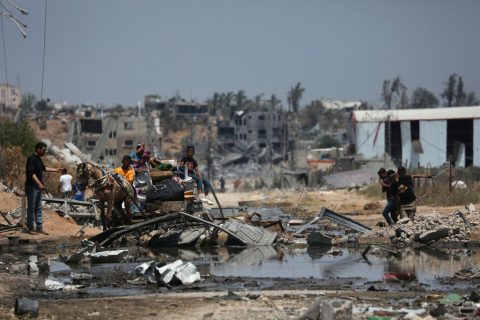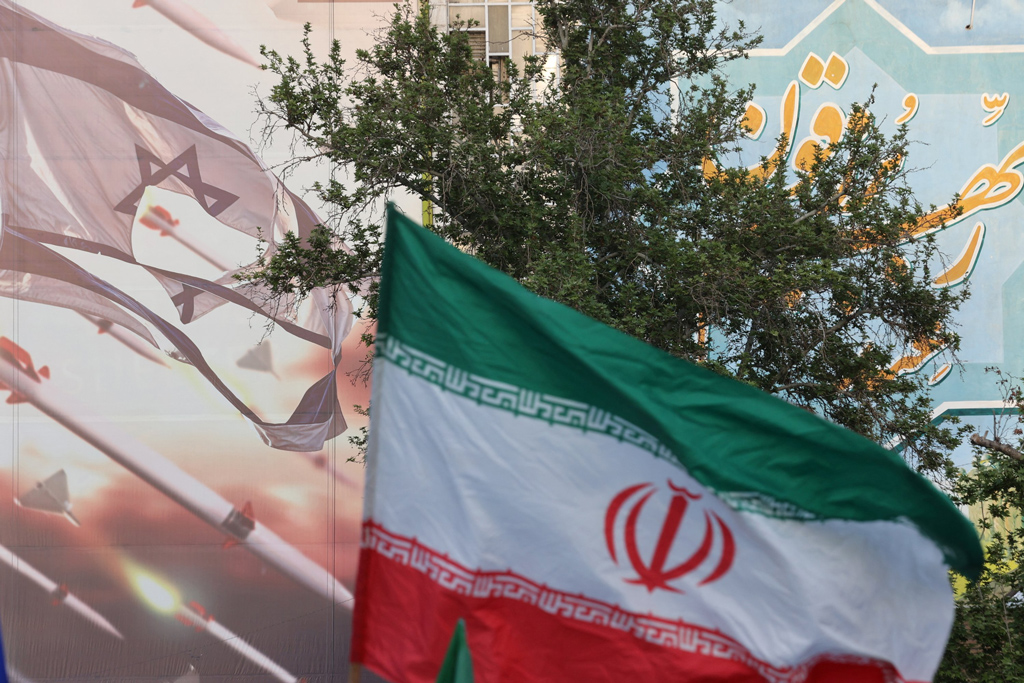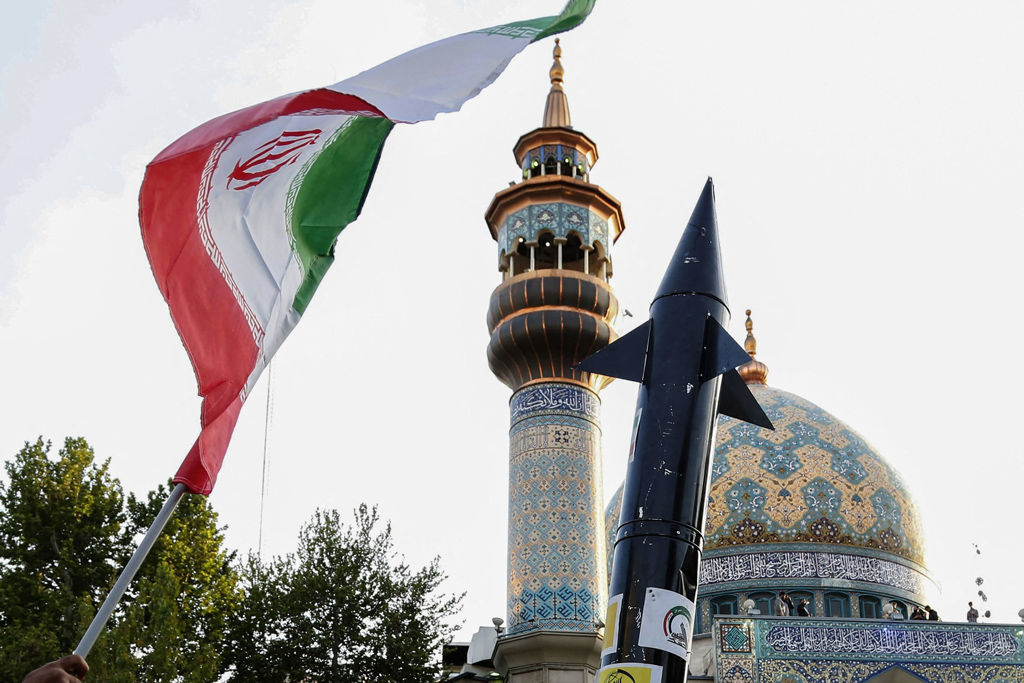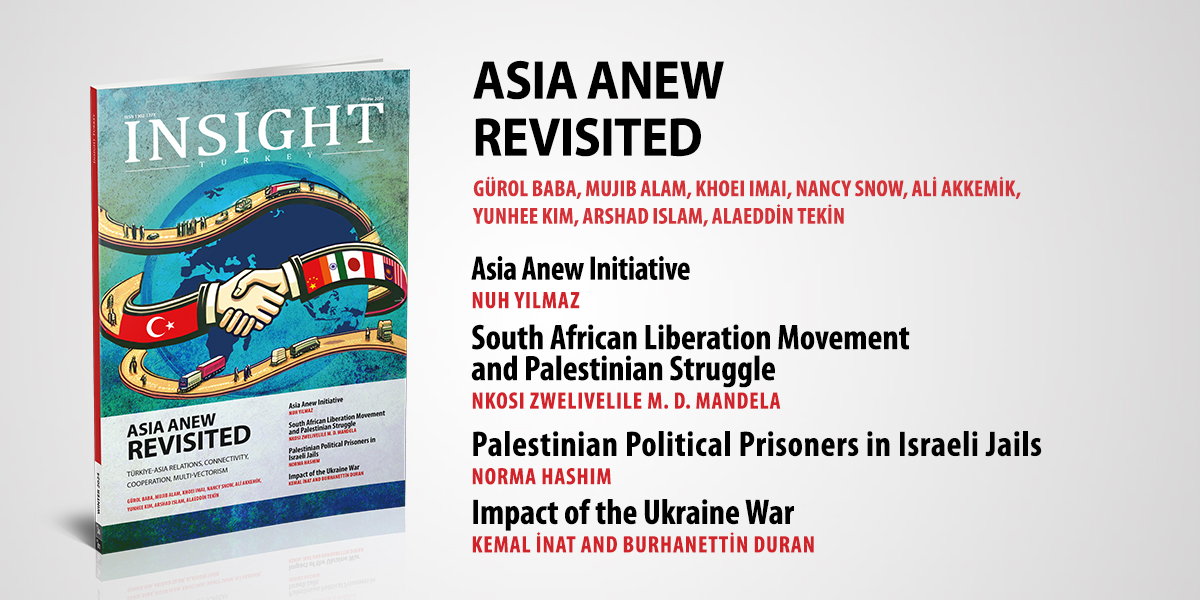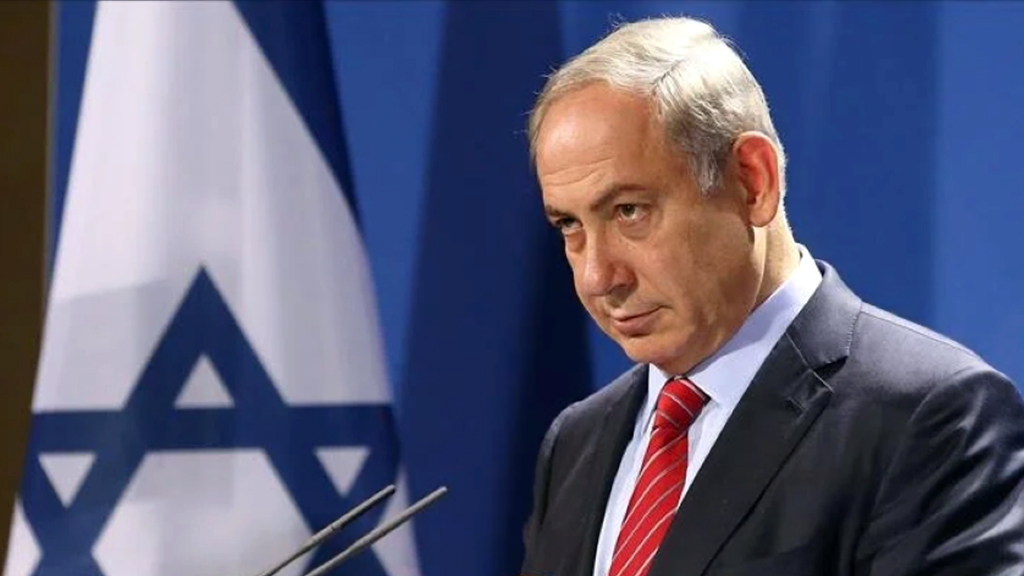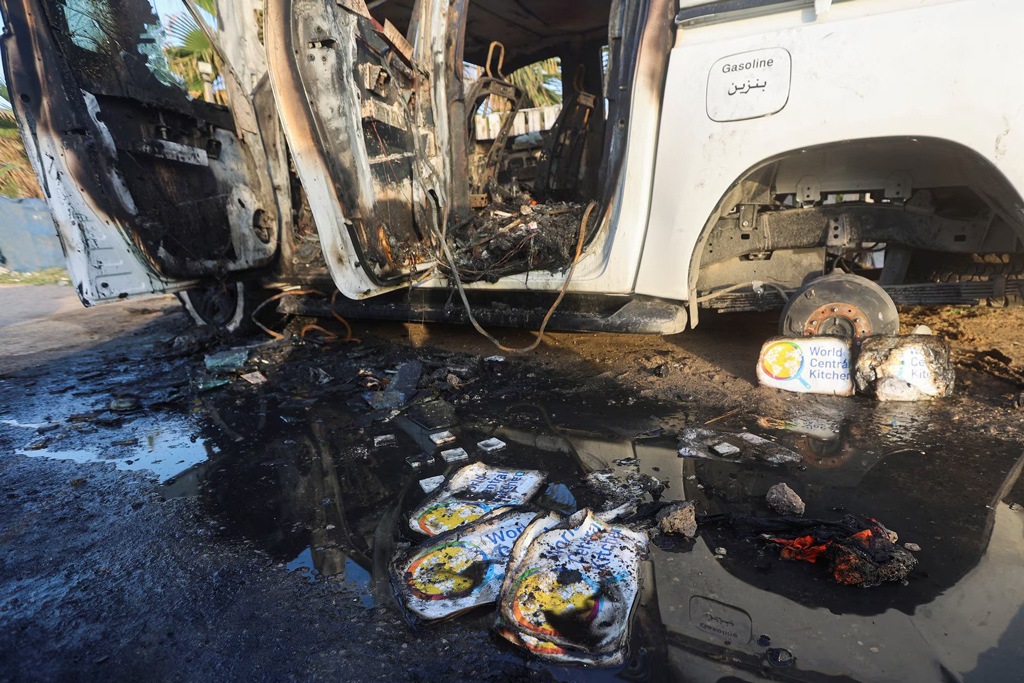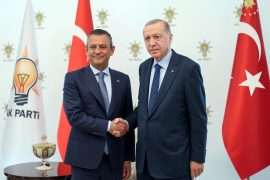Gaza
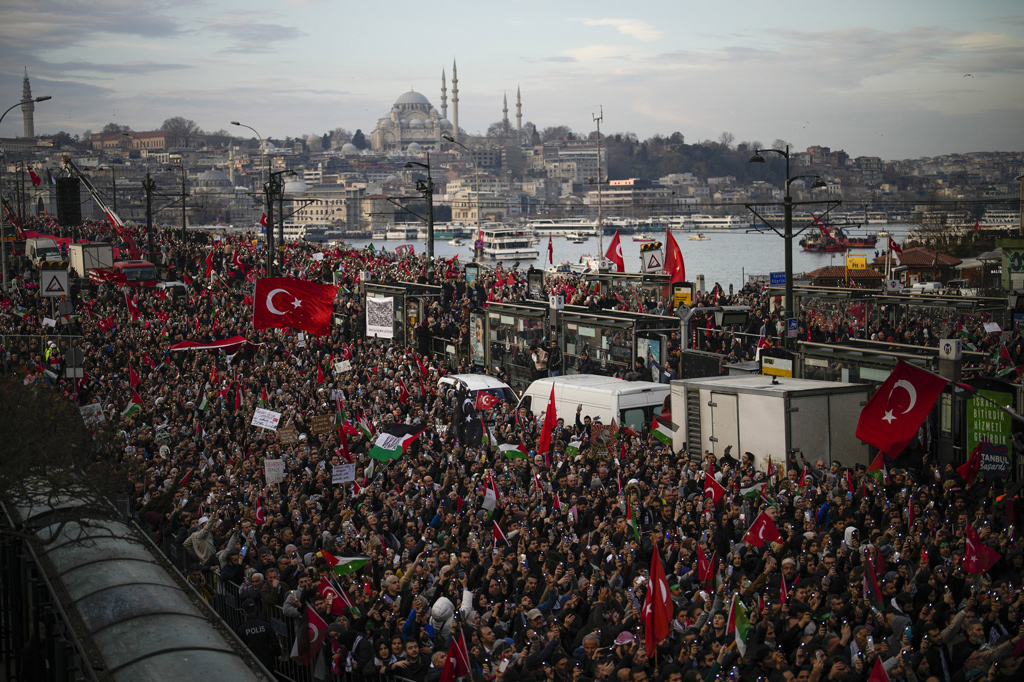
Türkiye’s diplomatic and legal stand in Gaza crisis
| OpinionTürkiye has been diligently navigating a highly dynamic foreign policy agenda since Oct. 7. The …
-
Opinion
Türkiye’s diplomatic and legal stand in Gaza crisis
By Murat YeşiltaşTürkiye has been diligently navigating a highly dynamic foreign policy agenda since Oct. 7. The inception of this process, spurred by Hamas’s Operation Aqsa Flood, has compelled Türkiye to undertake a comprehensive reassessment of its foreign policy strategies and plans in the Middle East.
-
Opinion
Normalization of Israel-Saudi ties under US sponsorship
By Kadir ÜstünIn recent days, news suggesting progress in the discussions between the United States and Saudi Arabia, and approaching the stage of agreement, could herald a new era in the Middle East. Saudis are seeking support from the United States to develop 'peaceful' nuclear technology in response to Iran's nuclear capacity, as well as security assurances in the event of a potential war. The agreement, which includes cooperation in advanced technology and distancing from China, is critical for the Biden administration, as its support depends on it. However, it will be challenging for a government led by Netanyahu, who has always opposed the establishment of a Palestinian state, to accept the insistence of the Saudis on stopping the Gaza war and a two-state solution. The Biden administration aims to use the normalization of relations between Israel and Saudi Arabia to sideline the Gaza issue and appear to have 'resolved' the Palestinian issue by the November elections, but Netanyahu remains the biggest obstacle to this.
-
Opinion
Why Arabs do not support Palestine?
By Muhittin AtamanIt is surprising to see that the Arab governments and citizens did not react effectively to the latest developments in the Gaza Strip. Although observers have been expecting a more effective reaction from Arab governments and citizens, they have largely remained indifferent to the ongoing genocide against the Palestinian people, living not only in the Gaza Strip but also in the West Bank. The streets of Arab states are unexpectedly very quiet compared with the streets of many non-Arab and non-Muslim countries.
Bu Konuda Daha Fazla
-
Middle East cannot be left in vortex of Iran-Israel...
By Burhanettin DuranThe direct confrontation between Iran and Israel remains under control – for now. Yet, it points to an emerging equilibrium in the region. There was already talk of escalating tensions in the Middle East around Gaza and Palestine in the wake of the Oct. 7 attack.
-
Israel or Iran: Who should we blame first?
By Muhittin AtamanThe whole world has been holding its breath and watching the Israeli-Iranian tension for the last two weeks.
-
Insight Turkey Publishes Its Latest Issue “Asia Anew Revisited”
By SETAWe are pleased to announce that the inaugural edition of Insight Turkey for 2024 has been published. This issue includes one commentary and six research articles delving into the diversity of Turkish foreign policy in East Asia. It offers a comprehensive analysis of contemporary Türkiye’s relations with Asian countries. Additionally, this issue also presents six pieces on other topics regarding the Palestinian crisis in Gaza, the relation between economic and military power, national brand of Japan, the citizenship law in Kosovo, and the impact of the Ukrainian war on global politics.
-
Netanyahu’s Iran card…
By Kadir ÜstünIn response to Israel's striking of Iran's consulate in Syria, Ayatollah Khamenei's statement of "retaliation will be given" has heightened the possibility of the regional proxy war escalating into direct conflict. Since October 7th, Netanyahu has been attempting to expand the conflict by targeting Hamas and Shia militia objectives in both Beirut and Syria. The relatively controlled continuation of the "regional war" relied on Iran and Hezbollah refraining from militarily supporting Hamas. However, Khamenei's remarks suggesting that striking the Iranian consulate would mean targeting Iranian soil have also put Washington on high alert.
-
Israel’s 2 grave mistakes that put its Western allies...
By Muhittin AtamanThe latest developments in Gaza have forced many states to reconsider their policies toward Israel’s genocidal attacks, the suffering of the people of Gaza and the resistance of the Gazan people, which will continue to shape not only regional but also global politics.
